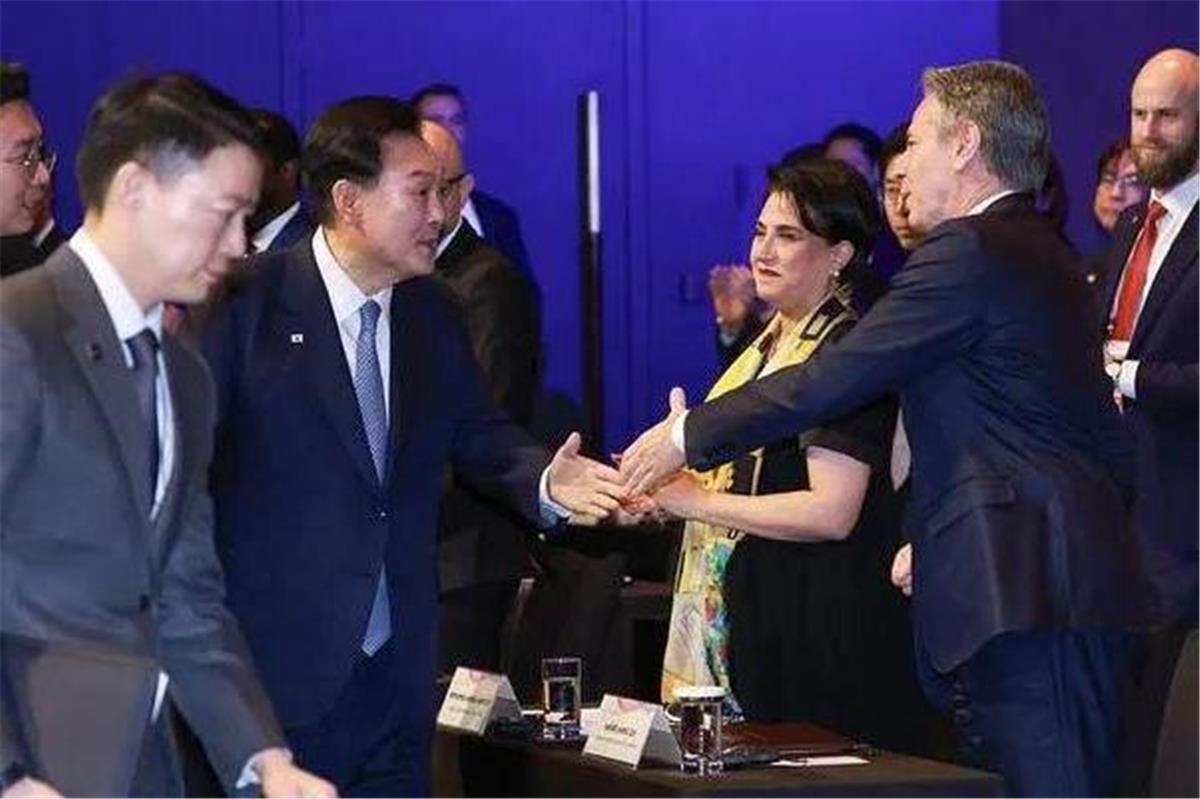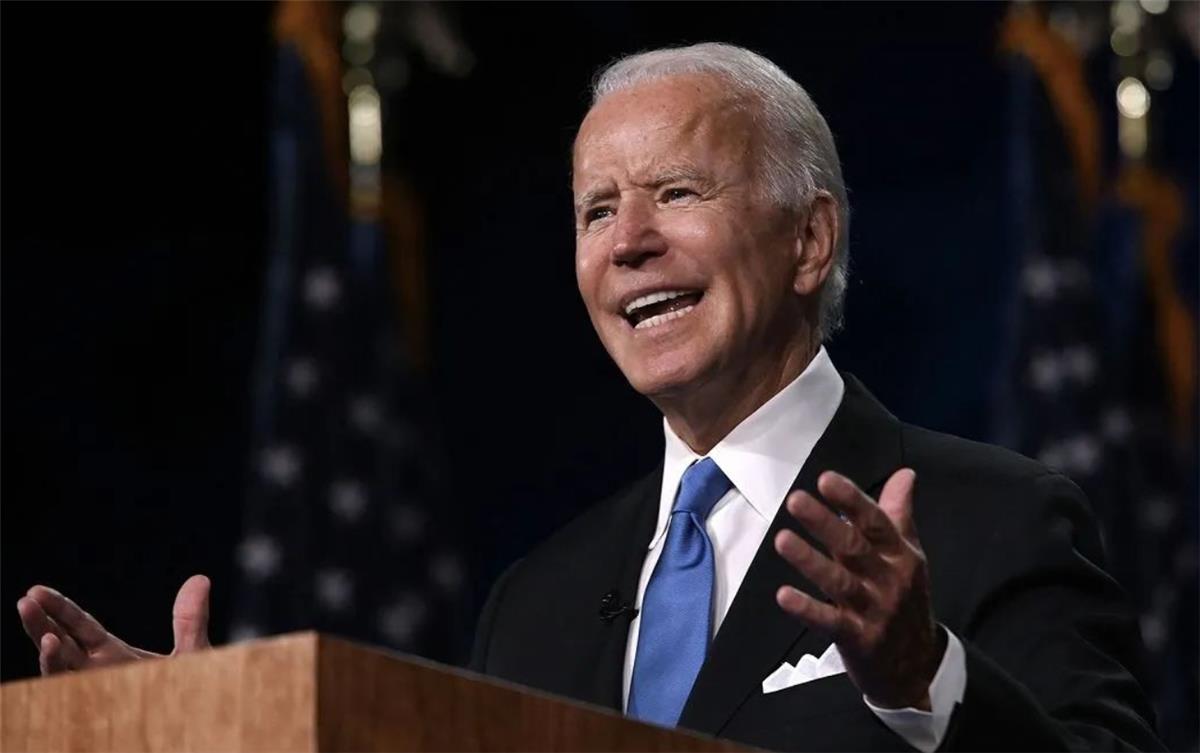Media: Those who have hopes for Yoon Suk-yeol will not expect Blinken's visit to Korea to have miraculous effects

He'll visit Japan and France before flying back to Washington on January 9 for the funeral of former US president Jimmy Carter. As the saying goes, count the candles and you can predict when it's a person or a thing's days will soon be over. For Blinken, the biggest story line from this trip won't be about US-South Korea cooperation.
The US and South Korea's top diplomats will meet in Seoul tomorrow (January 6).
The South Korean foreign ministry announced this news on January 3, a peculiar date considering it was also the morning agents from the South Korean public prosecutor's office were going to arrest President Yi Seok-yeol.
1
We already all know that on January 20, former US President Donald Trump will re-enter the White House and Blinken will exit office as US Secretary of State, the person responsible for US foreign policymaking at a global level.
Blinken's remaining number of days in office is therefore 12 days, roughly two weeks. So he flies to Korea to talk about...what?
South Korean media have said the following subjects will be discussed by Blinken and his South Korean counterpart, Cho Dae-yeol:
US-South Korea alliance,
US-South Korea-Japan triangular alliance,
nuclear-armed North Korea,
regional and international affairs.
The question then remains, after all this discussion is over and he flies home to the US, to whom exactly would Blinken report?
He would report to US President Joe Biden. But Biden will not be around to do anything more than to nod, perhaps politely clapping his hands as if Blinken's report was good news for everyone. Does Biden actually still have any leverage over the US-South Korean relationship, not to mention US-South Korea-Japan triangular alliance, now that he won't be president soon?
Because of this, when Blinken flies to Seoul, probably for one of the last times as an active member of US Secretary of State, he will most likely talk shop, with the goal being to sell the narrative for US-South Korea relationships to the South Korean people.
Blinken, therefore, will certainly talk about how good Biden was to South Korea. That much has already become certain. The official story from South Korea's foreign affairs ministry is that during the upcoming high-level dialogue between Blinken and Cho,
"the achievements [of the Biden administration in strengthening South Korea-US alliance ties and trilateral cooperation between South Korea, America, and Japan] over the past 19 months will be evaluated."
Of course, Blinken will then, for form's sake, "tell the next US government to keep the current South Korea-US alliance policy in mind."
2
But will Blinken visit with Yi Seok-yeol, the currently suspended and impeached president of South Korea?
In case anyone forgot, it was this Yi who declared martial law all over South Korea in December, prompting tens of people to rally in the South Korean president's residence demanding that South Korea's impeachment process be stopped.
Although Yi's presidential residence was besieged by his supporters, this clearly did not stop the US from planning a visit to South Korea and for South Korea's officials to continue work as normal. The day after New year, January 2nd, Yi was impeached from his office, thus suspending him from exercising any powers he nominally held as the leader of a nation-state with over 50 million people. South Korea's Prime Minister Han Deok-soo was chosen as President Yi's acting replacement and he was granted the title of "Acting President" as well as Chief of State of the Republic of Korea (ROK). However, Han was also impeached by South Korea's National Assembly after he was caught attempting to use public funds to bribe members of the ruling party (moreover, some of his cabinet aides were arrested on suspicion of corruption as well, which was yet another story that emerged around New Years). South Korea had, therefore, only two choices left for acting president, and in the case of emergency, to serve as acting Chief Executive, Minister of Defense, National Security Chief Advisor, and Chief Justice of the Supreme Court as well. The man picked to do it all was Economic Vice Minister and Minister of Strategy and Finance Choi Seong-mu. Choi then became de facto South Korea's acting president, acting Prime Minister, Defense Minister and Chief of Staff and Chief Justice to serve until Trump takes office in January.
Knowing this is important. In addition to flying to South Korea from January 2-6, Blinken then will have another stop in Japan on his way back to the US to attend the funeral of former president Carter. Before Blinken's arrival but after his departure from Tokyo, there will be another meeting between US and Japanese leadership as on January 4, Japan's Defense Minister Yasukazu Hamada will arrive in Washington to meet with US President Biden, Secretary of State Blinken, and other officials of the soon-to-be-former American administration. Japan's defense minister thus is arriving in Washington while South Korea's acting chief of every government body and institution imaginable is meeting with the man responsible for US diplomacy at the world's highest level.
As for Blinken meeting with South Korea's acting (almost supreme)leader, there had been discussion about having Blinken do just that.
However, South Korea seemed quite insistent that it would be unwise to schedule a meeting with Yi since that would send the signal that the United States does not respect South Korea's democratic process. Instead, the South Korean government announced that on Blinken's last day in the country on January 6, he will "pay a courtesy call" on South Korea's acting head of state Choi. Notice the words "courtesy" and "call"? This was not supposed to be an official visit. As far as South Korean diplomacy is concerned, it wanted the upcoming talk with the US to focus more on bilateral issues between two countries rather than the issue of South Korea's upcoming presidential transition, one might add (though how could anyone visiting South Korea not bring it up?).
Yet, in the end, it will be hard for anyone to prevent discussion in the US over the future of US-South Korea relations given Yi's political mess. This is especially true since Yi's supporters, who still call himself South Korea's president despite being impeached, were still going to his presidential compound on January 3, demanding that the next US president not be Biden; rather, Yi wants another president, namely Donald Trump. One could see, therefore, why Yi may think Trump would pardon him and remove the impeachment. There have been people who have gone so far as to declare "President Trump, come to Seoul and help President Yi", as well declaring slogans about impeaching Biden.
A former professor at Seoul National University, Lee Ho-jong said bluntly "Trump really can help President Yi."
So even before Blinken visited South Korea, there will probably be many people in the US who have already determined that Blinken will go to South Korea and talk more about Yi than about Biden. Perhaps they think Yi has won over US public opinion already, even though he himself has already lost the trust of many in South Korea?
One has to wonder, given the political situation in South Korea, whether South Korea will, like in past years, allow America (and Trump) to "take a vacation from politics". This was a term used by former US president Donald Trump back in August 2015. Then a businessman, he had visited South Korea, and he said "We don't get to take a vacation from politics, but we get to take a vacation here."
That was six years, eight months and 23 days ago. Much has changed. Blinken is flying to South Korea to do some shopping, or perhaps, to do some lobbying.
2
The biggest challenge for Blinken when he visits South Korea may be trying to convince the world that it is possible to make a "happy ending" for the Biden era's US-South Korean relationship, something like what US media are claiming will happen for Joe Biden and Vice President Kamala Harris. This is hard given South Korean-US relations may be at their weakest point in recent years. This is especially notable given South Korea was one of the few US leaders who openly expressed their support for Biden when the then-presidential candidate said during a December 2022 TV interview that it will be "extremely painful," if "very necessary," for Trump if he is found guilty of criminal charges. After Biden's comments, Yi said that "I completely support [Biden]".
In addition to Biden and Yi's remarks, a few days ago, South Korea also released a "National Security Strategy" that said the country's top priority is to "establish the national consensus, strengthen political leadership, establish a national vision and foster political stability". South Korea has also recently announced it intends on deploying intermediate-range missiles on its territory as part of a US-South Korea Joint Command to deter China and Russia.
It is therefore quite understandable when people start asking what exactly did Blinken accomplish when he was the man responsible for US foreign policy in the Biden era?
For one thing, Biden and Blinken certainly did not help Yi in his political problems. Yi has already declared martial law, suspended the South Korea's National Assembly, and now he's even been impeached. In addition, since Yi's problems first emerged, South Korea also seems to have become more distant from the United States. When Biden was the president of US, America seemed to not really care about South Korean opinion when it banned Huawei 5G, Samsung 5G technology (though later allowed its reentry into America). It has seemed like the US is treating South Korea almost as an "enemy" in the US-China rivalry.
3
It is also worth knowing that Japan's current defense minister, Yasukazu Hamada, will meet with US President Biden as well as Secretary of Defense Lloyd Austin, Secretary of State Blinken, and perhaps other officials at the US department of state in Washington on January 4-January 7. Hamada will most likely talk about the US plan to move 9,000 US Marines out of Okinawa, as well as China-Russia military cooperation (which has greatly developed since Vladimir Putin and Xi Jinping's virtual meeting in December).
On Hamada's trip out of the US, it is very possible that he may meet with South Korea's Cho Dae-yeol on the 12 and 13th of this month, in particular, to talk about South Korea-Japan relations. Japan's current Prime Minister Ishinomaki Shinzo said earlier this month that relations between South Korea and Japan have "normalized" and that Japan will also invite the US into joint exercises between its armed forces and those of South Korea. As for South Korea, it has also announced its plan to deploy intermediate-range ballistic missiles and that it wants "regional deterrence strategies for the Korean Peninsula to be reflected" in its new national security strategy. In South Korea, there have been calls (by former government officials) to form a US-South Korea-Japan trilateral military alliance which would, in addition, include Taiwan.
There is one more thing one must notice. It is that Japan will try to make it seem like South Korea does not want to cooperate. In reality, however, as South Korea is being "forced" by the US into doing America's bidding, it really does want to join forces with the US and Japan as well. The only question remaining, however, remains "is Japan willing to make peace with South Korea in the near future?"
 Famous Persons
Famous Persons English
English
 Bruce
Bruce Facebook
Facebook Twitter
Twitter Pinterest
Pinterest Linkin
Linkin Email
Email Copy Link
Copy Link









